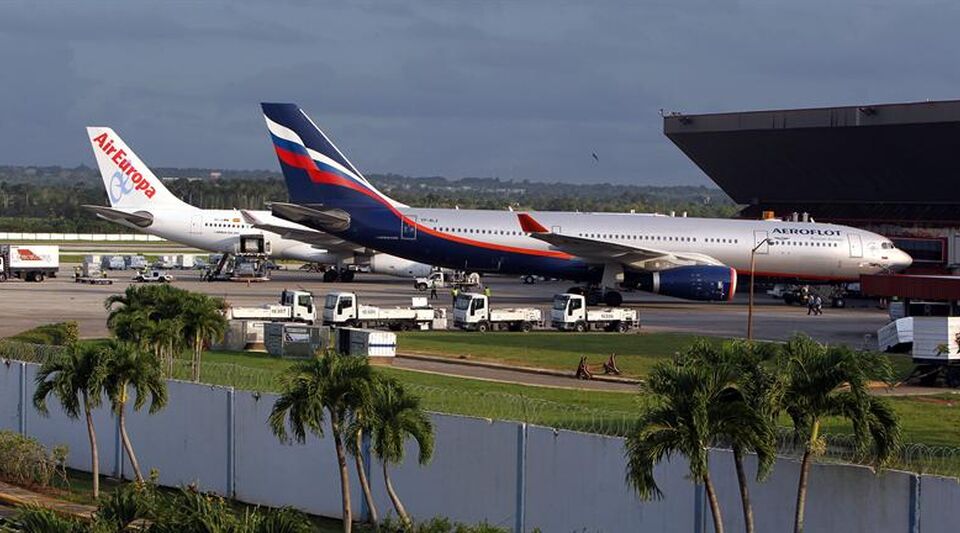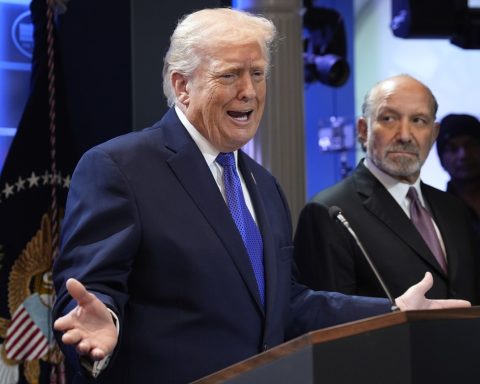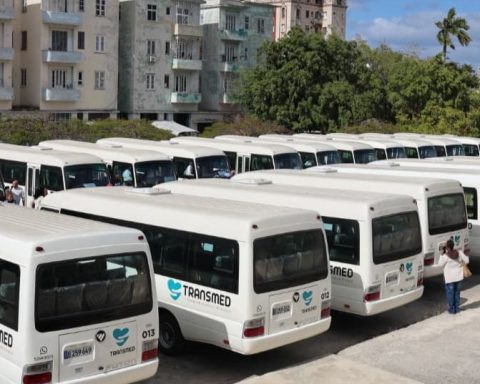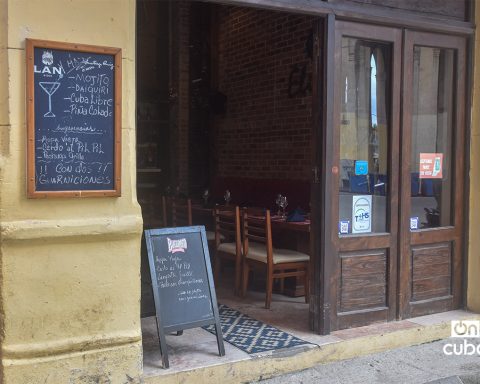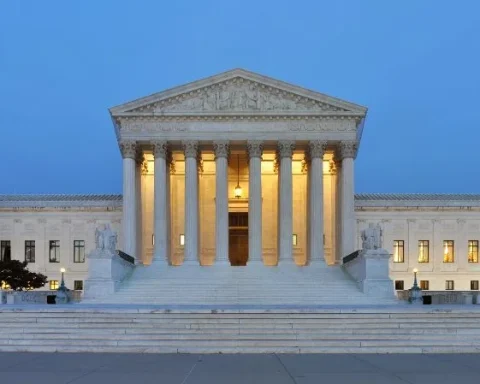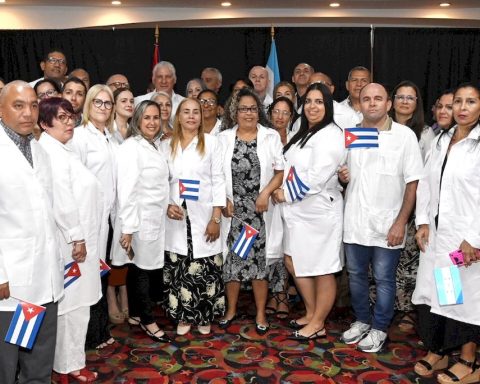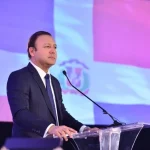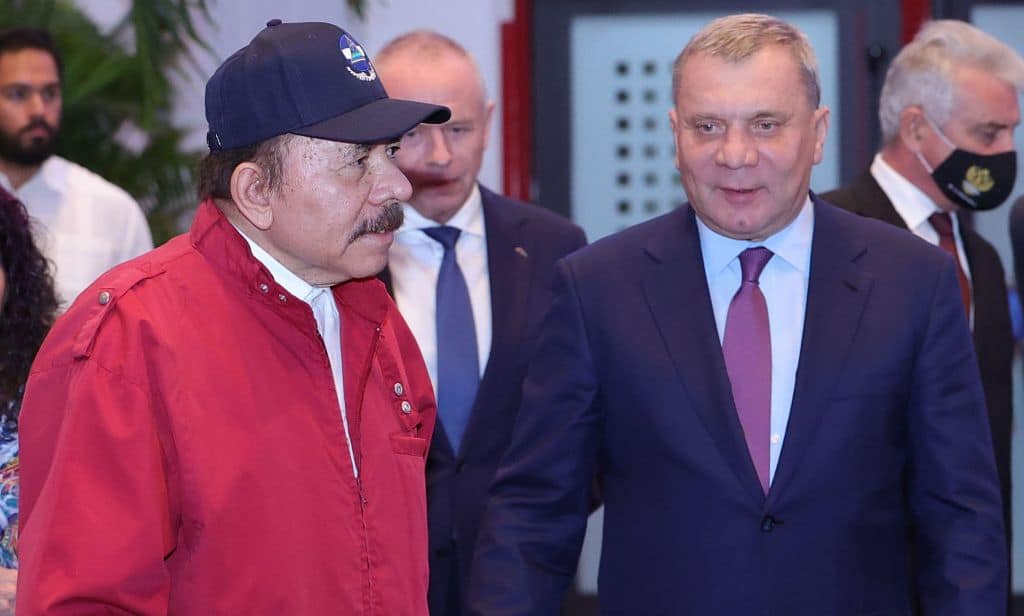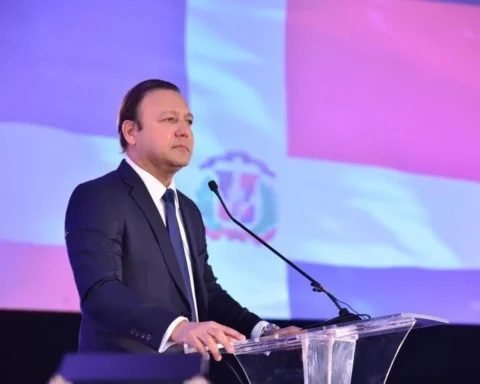The closure of European airspace to Russian planes is one of the first collateral consequences for Cuba of the invasion of Ukraine. The Island remains, for now, without Russian tourists, its only rising market in recent years. The Association of Tour Operators of Russia (Ator) has reported this Monday that the restrictions have forced the suspension of the sale of trips to Latin America and the Caribbean.
“In the reservation systems of tour operators, trips for all dates, as of February 28, to the Dominican Republic, Mexico, Cuba, Venezuela, are no longer available,” says the statement, released by the Sputnik agency.
The measure of closing the airspace to Russian aircraft is also in force in Canada, an “insurmountable obstacle for transatlantic flights by Russian airlines, even to open countries,” the statement added.
The measure of closing the airspace to Russian aircraft is also in force in Canada, an “insurmountable obstacle for transatlantic flights of Russian airlines, even to open countries”
One of the main companies that fly to the island from Cuba, Aeroflot, has suspended all flights to Cuba as of Monday due to the impossibility of crossing Canadian airspace, according to the company, although it could also be due to the regular stops it makes back to Moscow.
“Aeroflot’s transatlantic flights from Moscow and back to the following destinations have been cancelled: Mexico (Cancun), United States (Los Angeles, Miami, New York and Washington), Cuba (Havana and Varadero) Dominican Republic (Punta Cana) “, says the statement.
At the Aeroflot offices in Havana, they assure this newspaper that they have no instructions from the “headquarters”, and that at least until March 6 there are no scheduled flights. All Russian tourists must go to their country’s consulate to register.
In a call to the Russian diplomatic headquarters, they inform that travelers must send an email, individually, with their name and surname, passport number, date of entry to Cuba and arrival flight number, expected departure date and number. flight, airport and, if applicable, tour operator.
Nor can the Azur Air company, which flew to the Cuban tourist destinations of Varadero and Cayo Coco, reach the island. “Due to the introduction of restrictions on the use of airspace, the Azur airline temporarily suspends passenger flights from Russia to Mexico. , Dominican Republic and Cuba from February 28, 2022,” he communicated through his Facebook page.
Nor can the Azur Air company, which flew to the Cuban tourist destinations of Varadero and Cayo Coco, reach the island. “Due to the introduction of restrictions on the use of airspace, the Azur airline temporarily suspends passenger flights from Russia to Mexico. , Dominican Republic and Cuba from February 28, 2022,” he communicated through his Facebook page.
Due to the introduction of restrictions on the use of airspace, the Azur airline temporarily suspends passenger flights from Russia to Mexico, the Dominican Republic and Cuba from February 28, 2022.
The company adds that it will take its travelers out of these destinations with “export flights” and asks those who had purchased tickets to contact the operators to proceed with possible returns. “Azur Air continues to carry out flight programs to Turkey, Egypt, the United Arab Emirates, Maldives and Vietnam,” they explain.
Royal Flight has also suspended its flights to Cuba and the Dominican Republic and will limit itself, like Azur, to chartering return ships for its tourists stranded on the Island.
Royal Flight has also suspended its flights to Cuba and the Dominican Republic and will limit itself, like Azur, to chartering return ships for its tourists stranded on the island.
At the moment, the only airline that maintains its forecasts to travel to Cuba is NordWind, which flies to Cayo Coco and Varadero. In the case of the first destination, the company has a flight scheduled for March 20, but to go to the Matanzas resort there are two weekly flights throughout the month of March that are still visible. The Russian airline has announced the cancellation of its routes to Europe, as required by the measure of the Twenty-seven.
The regulation approved by the European Union that prohibits the entry into the airspace of Russian aircraft goes further and also includes aircraft that maintain code-share or capacity reservation agreements and those registered in Russia or that are controlled by individuals or Russian legal entities, entities or bodies. This implies that there could be no agreements with Cubana de Aviación that cover the route or part of it.
The Russian market has been clearly increasing in Cuba in recent years, to the point where it has become the fastest growing. In 2019, 178,000 tourists from the Eurasian country arrived on the Island. In 2020, already with the covid-19 crisis, the number dropped to 63,562 Russians, but in 2021 they did 121,949, a good relative figure despite the catastrophic global figures for Cuban tourism from the pandemic.
The Island has not been able to recover lost ground, especially against the Dominican Republic, whose strategy has allowed it to reach record numbers. The Russians, in fact, began this past year to prefer the neighboring island to Cuba and in November only 8,019 arrived, compared to the 21,387 of its competitor, which, without a doubt, will also be affected by the sanctions.
The Cuban authorities have aligned themselves with Russia in this crisis, as expected, since in the midst of widespread economic ruin, Moscow is one of the few remaining allies for the island.
The Cuban authorities have aligned themselves with Russia in this crisis, as expected, since in the midst of widespread economic ruin, Moscow is one of the few remaining allies for the island. However, the economic sanctions imposed not only by the US and the EU, but also by Japan, Canada, Australia or South Korea, will soon make a dent in the Russian economy, whose size does not exceed Spain (it is in 11th place in the world ranking by GDP), and it is easy to foresee that there will be no waste for its Latin American partners. All of them – Venezuela and Nicaragua, although possibly also Brazil, which has not yet condemned the Russian invasion – will also be affected by measures like this one.
“What must be taken into account is that the sanctions on Russia are so robust that they will have an impact on those governments that have economic affiliations with Russia. Venezuela is going to begin to feel that pressure, Nicaragua too, as well as Cuba,” said the in charge for the western hemisphere of the USA, Juan González, in an interview with the Voice of America.
According to Ator’s calculations, more than 150,000 Russian tourists are currently abroad, and more than 27,000 of them in countries with direct problems for their return. The Rosaviatsia and Rosturism agencies, both state-owned, are now working with the Foreign Ministry to get their citizens out of the European countries where they are.
________________________
Collaborate with our work:
The team of 14ymedio is committed to doing serious journalism that reflects the reality of deep Cuba. Thank you for joining us on this long road. We invite you to continue supporting us, but this time becoming a member of our journal. Together we can continue transforming journalism in Cuba.
